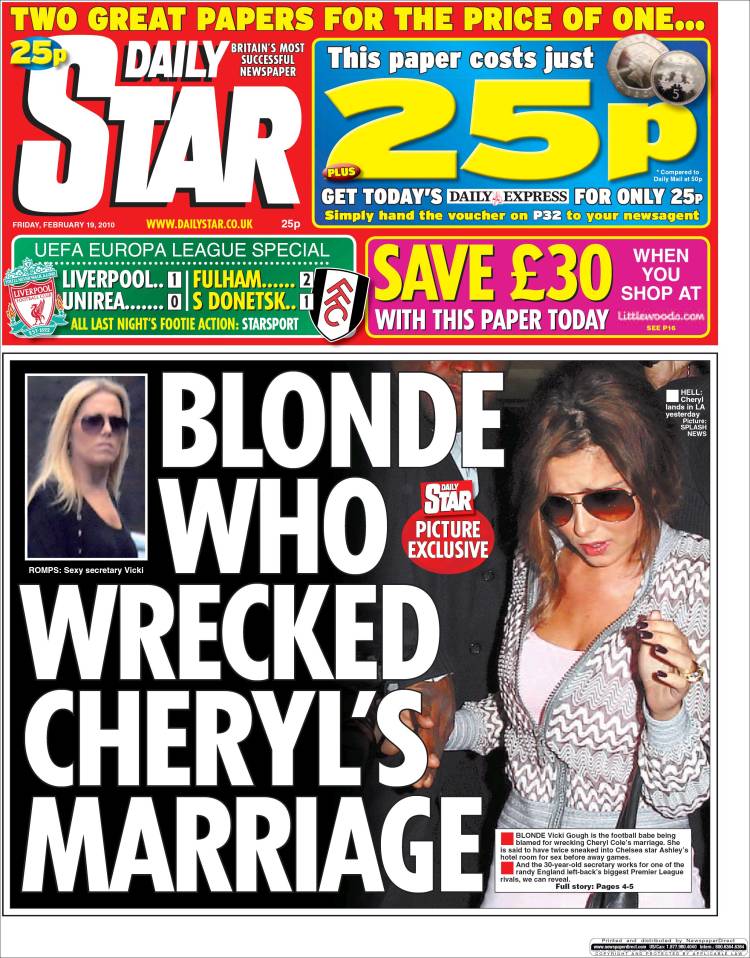 The Guardian - Priced at £1.20, it's the most expensive out of the papers. It's aimed at people in public sector and graduates with high paid jobs, or the middle class. The Guardian follows more liberal outlook, which promotes equal rights and freedom to express your identity. There are many different sections to the Guardian as it's a really big broadsheet, there's Sport, Entertainment, Financial etc, along with supplements such as "The Truth About How Cambridge Picks Its Students". With all these sections, the paper comes across more cultural with movies, theatre and the arts. The articles in the first few pages are either political issues concerning the UK, international news and race issues.
The Guardian - Priced at £1.20, it's the most expensive out of the papers. It's aimed at people in public sector and graduates with high paid jobs, or the middle class. The Guardian follows more liberal outlook, which promotes equal rights and freedom to express your identity. There are many different sections to the Guardian as it's a really big broadsheet, there's Sport, Entertainment, Financial etc, along with supplements such as "The Truth About How Cambridge Picks Its Students". With all these sections, the paper comes across more cultural with movies, theatre and the arts. The articles in the first few pages are either political issues concerning the UK, international news and race issues.
The Times - Price at only £1, which is an attempt to bring in a larger audience. The paper has downsized to a tabloid size, but it was traditionally broadsheet. Rupert Murdoch owns the news corporation under News International which also owned The News of The World (it got closed down), and it still owns Sky. The paper could be seen as a more 'intelligent' version of the Sun, as it's aimed at professional but still has a smaller readership. There are sections similar to the Guardian, giving it a cultural feel.

Cambridge News - Priced at 50p and owned by Archant Media that focuses on regional news. The newspaper tries to promote good news in the local area, this is an attempt to raise community spirit and morale. This is very important in the current economic climate where the society can get depressed with bad news. The sport section and page 4 are the same in all of the Archant Media, this helps to promote the company and gives a sense of connection with the rest of the community. We have noticed that most of the images included have people smiling, again this adds to the upbeat atmosphere.

Daily Mirror - Marketed as "Real News.. Real Entertainment", and features gossip news on the front page rather than politics and "important" issues. The articles are generally about celebrities or shocking stories about members of the public. The Daily Mirror supports the Labour party, and has as section for politics using this to mock the current Conservative government, this is an attempt to vocalize which Labour supporters think. It's reactionary, they react and support whatever views the country follows at that time.

Daily Star - Priced at 30p, again it's a gossip paper which could be seen as a socially acceptable gossip for men. Again the articles are mostly about sport and celebrities, with lots of large photos and uses some adverts. These gossip newspapers can make the readers appear very unconcerned about politics, and generally have little intelligence.
Newspapers not only represent different identities in their articles, but show us what the identity of the readers is too. This can be particularly helpful when considering what Britain's identity really is.
No comments:
Post a Comment